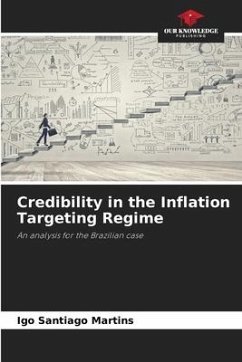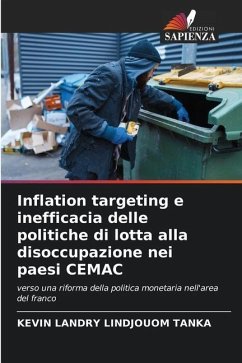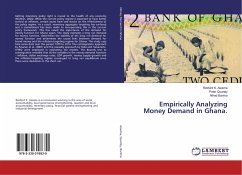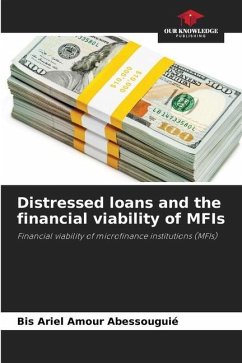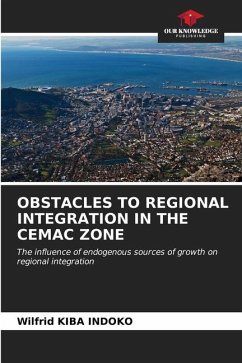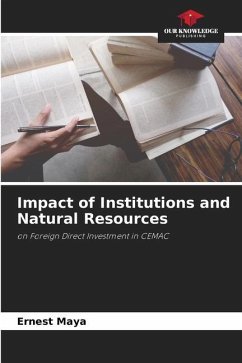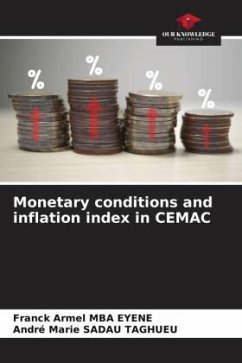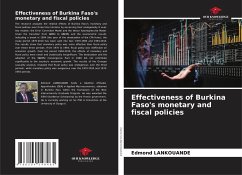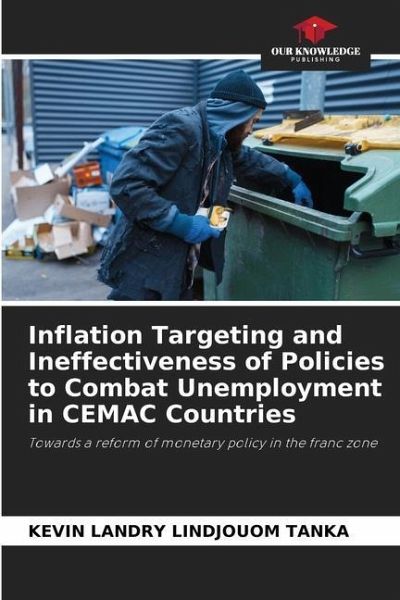
Inflation Targeting and Ineffectiveness of Policies to Combat Unemployment in CEMAC Countries
Towards a reform of monetary policy in the franc zone
Versandkostenfrei!
Versandfertig in 6-10 Tagen
40,99 €
inkl. MwSt.

PAYBACK Punkte
20 °P sammeln!
During the 1972-1990 period, monetary policy was characterized by the setting of an ultimate objective, focused on the search for and promotion of economic development in the BEAC issuing zone. However, since the reforms and financial liberalization of the 1990s, BEAC's main objective has been to maintain an inflation level of 3% for all member countries. The purpose of this study is to assess the relevance of the inflation target in the countries of the Economic and Monetary Community of Central Africa (CEMAC), by estimating the sacrifice ratio over the 1994-2019 period. Our study shows that ...
During the 1972-1990 period, monetary policy was characterized by the setting of an ultimate objective, focused on the search for and promotion of economic development in the BEAC issuing zone. However, since the reforms and financial liberalization of the 1990s, BEAC's main objective has been to maintain an inflation level of 3% for all member countries. The purpose of this study is to assess the relevance of the inflation target in the countries of the Economic and Monetary Community of Central Africa (CEMAC), by estimating the sacrifice ratio over the 1994-2019 period. Our study shows that the 3% inflation target renders ineffective the policies to fight unemployment in CEMAC countries.



